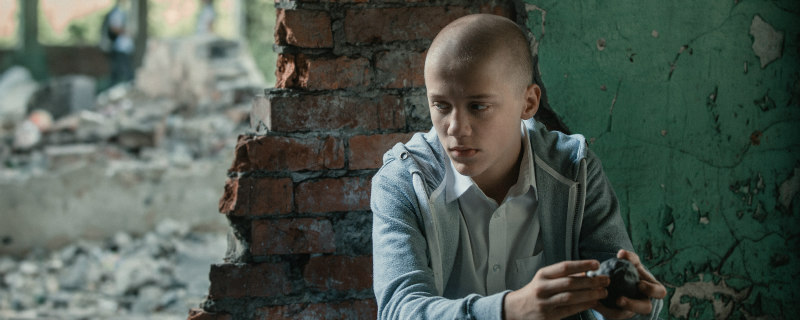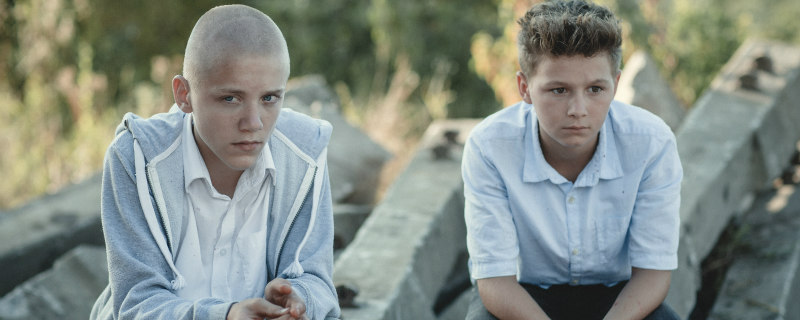
A teenage girl is drawn into two of her classmates' sadistic behaviour.
Review by Christopher Marchant
Directed by: Bartosz M Kowalski
Starring: Michalina Swistun, Nicolas Przygoda, Przemyslaw Balinski

It can be unprofessional to give away major plot points in a review. But with Polish thriller Playground (Plac zabaw), it feels irresponsible not to make clear that the film concludes with a thinly fictionalised version of the abduction and murder of James Bulger.
Set in a grimly nondescript town, Playground opens by looking into the home lives of three schoolkids. Each one unsettles the viewer. Gabrysia (Michalina Swistun) is nervous and shy, ready to tell popular and handsome Szymek (Nicolas Przygoda) of her feelings for him on the last day of school. She is deeply uncomfortable in her skin, to the point of pouring boiling water into her mouth.


Szymek is the doting carer to his disabled father, until a simmering frustration at his lot in life explodes. Czarek (Przemyslaw Balinski) is trapped between a baby in his room and an uncaring mother and older brother. All is shot in a cinema verite style, and though the child acting is flatter in this, I was initially reminded of Icelandic coming of age drama Heartstone.
When Gabrysia tells Szymek her feelings in the ruins behind the school, he brutally capitalises on them. Czarek is filming, and it becomes clear the pair entertain the darkest thoughts imaginable as a means of escape from their existences. Playground is not a look at children and their ordinary troubles, but a window into the banality of evil.
Once the boys make their way to the mall, only to find the game store is closed, things begin to follow a nauseatingly familiar path. The CCTV footage of a child being led away was immediately reminiscent of the Bulger murder, and the child being led past witnesses to train tracks left no question. This is not like Boy A, in which an audience is led to sympathise with Jack (Andrew Garfield) years after the crime took place. It is merely a cold look at what happened at the time, and why.


The symbolism of Playground is sometimes confused. Szymek and Czarek commit their atrocities in part because they are ignored, yet there is a surreal sequence in which an entire street of people are staring at them. At these points it's hard to figure out what the film is trying to say, and with the inclusion of scenes so horrific Playground's justifications should be rock solid.
Director and editor Bartosz M Kowalski makes effective use of the camera to reflect the mindsets of its three leads. The sexual assault on Gabrysia is told from her perspective, lots of quick cuts and shaky camera work to show a situation rapidly getting out of control.


The murder of the toddler is shown through a single dispassionate wide shot, this being an evil borne of nothing more than two schoolkids' fleeting boredom. This is a scene that may be even more disturbing than the rape in Irreversible, in which director Gaspar Noe likewise never moves the camera away.
Playground is a sickening and uncomfortable watch, especially for British viewers all too familiar with the events that inspired it. It is also able to delve into the mindset of child killers, and if you can stomach it, can teach a lot about kids turning to evil as a way of regaining power lost in the home.

Playground is on VOD now.

